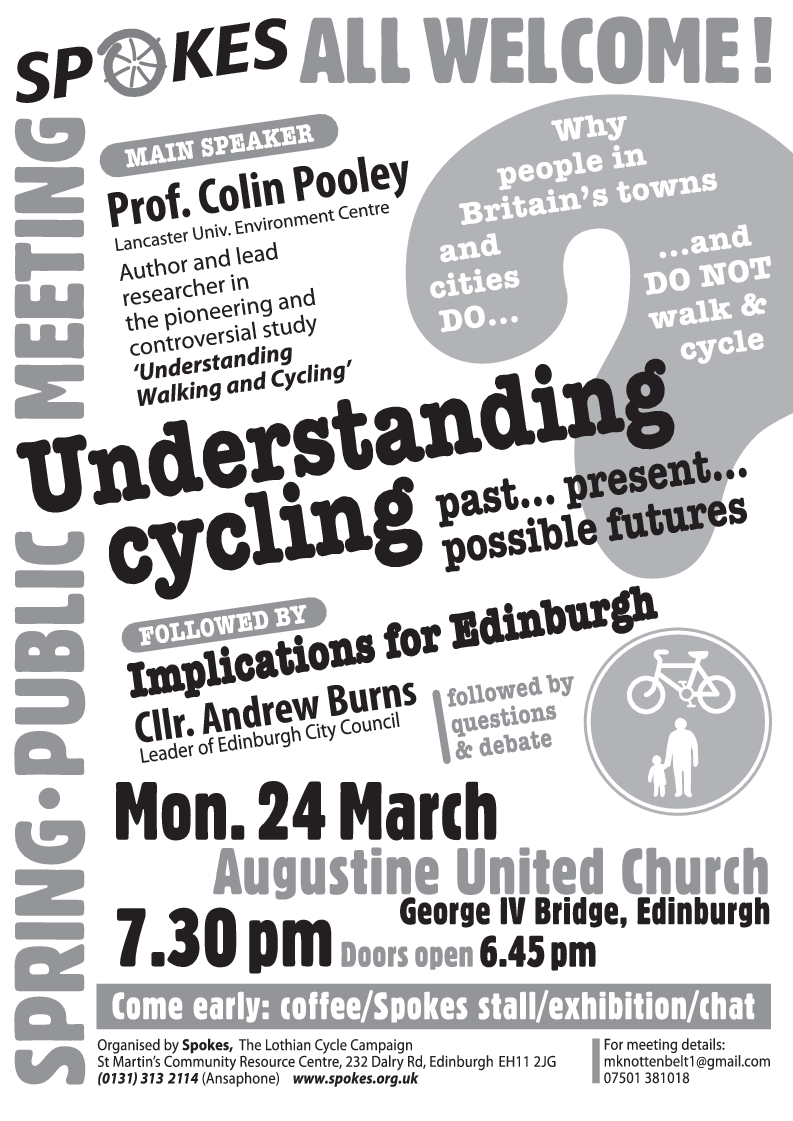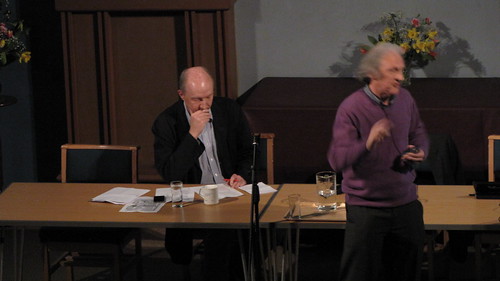I am sure we have discussed this research before.
A few problems. It states:
Key findings of the research are that whilst attitudes to walking and cycling are mostly positive or neu- tral, many people who would like to engage in more active travel fail to do so due to a combination of factors. These can be summarised as:
Concerns about the physical environment, especially with regard to safety when walking or cycling;
The difficulty of fitting walking and cycling into complex household routines (especially with young children);
The perception that walking and cycling are in some ways abnormal things to do so.
Yeah, I can just imagine what people said. I am 99.9% certain that in their mind's eye, folk were weighing up cyclng/walking versus taking their car. So, "Cycling's not safe! Walking's safe, but too much effort, too slow. Car is safe and fast. Cycling/walking are far too slow. How on earth will we do the monthly shop/school run? You need a car! Cycling and walking are weird. Everybody who is anybody drives! We're not weird, we're normal. We'd like to change, of course we all want to save the planet and please interviewers like you, but let's be realistic."
And then it states:
Second, do not base policies about walking and cycling on the views and experiences of existing committed cyclists and pedestrians. These are a minority who have, against all the odds, successfully negotiated a hostile urban environment to incorporate walk- ing and cycling into their everyday routines. It is necessary to talk – as we have done - to non-walkers and non-cyclists, potential cyclist and walkers, former cyclists and walkers, recreational cyclists and occasional walkers to determine what would encourage them to make more use of these transport modes.
Right. So, you ask drivers instead? People who think cycling and walking are dangerous, too much effort, too slow, and too weird? What will those people get out of their cars for? Buses? "Too slow, too many poor people, don't stop exactly outside people's houses, don't run at night". Trains? "A bit better than buses but more inflexible and expensive". Trams? "Have you seen how much money they wasted on that? Like trains, but slower". Cycling and walking? "Dangerous, too much effort, too slow, and too weird".
Asking the people who are locked into the system creating the problem how to switch them to a different system will result in precisely no change. The answer will just be that they don't want to change, they just want conditions for their system to improve. Hence, dual the A9, bypasses, get rid of bus lanes, etc.
This kind of consultation with the majority group is not going to work. Look around the world, see places where cycling has increased. It is only done by promoting the interests of the minority group at the expense of the majority group that change occurs.
(For the avoidance of doubt, IMO the actual recommendations for action in the report are sensible. However to cast these rhetorically as basing policy on what non-cyclists and non-walkers want is disingenuous. These are exactly the measures that existing cyclists and walkers want to see.)




 posts
posts
